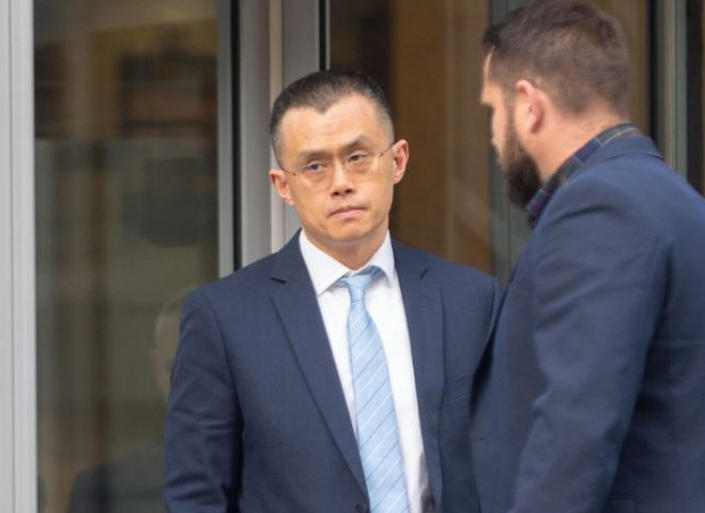CZ Binance Faces Renewed Scrutiny in Lawsuit Over Alleged Terror Financing Ties

Changpeng Zhao, the billionaire co-founder of the world’s largest cryptocurrency exchange Binance, now confronts fresh legal challenges from families devastated by the October 7, 2023, Hamas attack on Israel. A federal court complaint filed on November 24, 2025, in the U.S. District Court for the District of North Dakota accuses Zhao and Binance of providing substantial assistance to U.S.-designated terrorist groups, including Hamas, Hezbollah, Palestinian Islamic Jihad, and Iran’s Revolutionary Guards.
The plaintiffs, over 300 American victims and their relatives who suffered losses in the assault that claimed around 1,200 lives and led to more than 250 hostages, seek compensatory and punitive damages under the Anti-Terrorism Act. This civil action builds on Binance’s troubled history with U.S. regulators, coming just weeks after President Donald Trump pardoned Zhao on October 23rd for his prior money laundering conviction.
The allegations center on Binance’s role in facilitating the movement of illicit funds through its platform, even after the company settled major U.S. charges in November 2023 by paying over $4.3 billion, the largest corporate penalty in history for such violations. Lawyers representing the families, including those from Willkie Farr & Gallagher, Osen, Stein Mitchell Beato & Missner, and Motley Rice, claim the exchange knowingly enabled more than $1 billion in transactions linked to these militant organizations since 2017.
They point to public blockchain data showing over $50 million in transfers to Hamas-affiliated wallets alone after the October 7 attack, with Binance operated wallets sending the equivalent of more than $300 million to flagged addresses before the assault and $115 million afterward. Some of these accounts reportedly remain active, allowing ongoing obfuscation of fund flows that plaintiffs argue directly supported the violence.
Zhao, widely known in crypto circles as just CZ, had pleaded guilty in 2023 to failing to implement adequate anti-money laundering controls at Binance, a lapse that allowed over 100,000 suspicious transactions involving terrorist entities to go unreported. He served a four-month prison sentence, released in September 2024, before Trump’s pardon restored his ability to engage in financial ventures. The White House framed the clemency as a counter to what it called the Biden administration’s “war on cryptocurrency,” noting no direct fraud or identifiable victims in Zhao’s case.
Trump himself later distanced from the decision during a 60 Minutes interview, claiming he did not know Zhao personally and viewed the prosecution as a political witch hunt. This pardon, however, does not shield Zhao from civil suits like this one, which focus on private claims rather than federal criminal penalties.
Stay In The Loop and Never Miss Important Crypto News
Sign up and be the first to know when we publishLegal Claims and Binance’s Compliance Record
The complaint goes beyond prior accusations by asserting Binance’s deliberate design flaws created a “clandestine funding mechanism” for these groups, processing $1.5 million violating trades and ignoring internal warnings about high-risk activities. Attorneys for the victims highlight that despite the 2023 settlement, which mandated enhanced monitoring and an independent compliance overseer, the platform continued to handle transactions tied to sanctioned entities.
They argue this pattern not only evaded U.S. sanctions enforced by the Treasury’s Office of Foreign Assets Control but also amplified the October 7 tragedy by bolstering Hamas’s operational capabilities. Blockchain analysis cited in the 284-page filing reveals Gaza-based organizations using Binance to shuffle funds, with the exchange’s tools enabling anonymity that traditional banks could not match.
According to the Financial Times, Binance responded to the suit by declining to comment on active litigation but reaffirming its adherence to international sanctions, akin to other global financial institutions. The company noted that leaders from the Treasury’s Financial Crimes Enforcement Network and Office of Foreign Assets Control have stated cryptocurrency plays a limited role in Hamas financing overall.
In the immediate aftermath of the 2023 attack, Binance complied with Israeli authorities by freezing a small number of accounts and blocking others linked to the group. This echoes actions taken in a separate ongoing New York federal lawsuit filed in February 2024 by other October 7 victims, where Binance and Zhao defend against claims of pre-attack funding support. In that case, their legal team has argued the platform’s interactions with Hamas were unremarkable and insufficient to prove intent.

